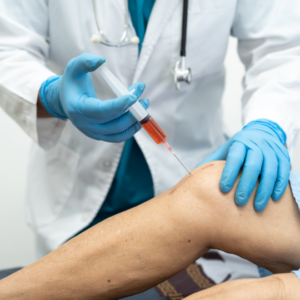Scar therapy using micro needling, ozone, dextrose, and peptides is a holistic approach aimed at improving the appearance and function of scars. Each of these components offers unique benefits in promoting wound healing, tissue regeneration, and collagen remodeling. Here’s an overview of their potential benefits:
Micro needling
- May reduce the appearance of different types of scars.
- Micro needling can be effective for various types of scars, including acne scars, surgical scars, and stretch marks.
- It can also help with hyperpigmentation or discoloration associated with scars by promoting skin cell turnover.
Oxygen Therapy
-
- Ozone therapy involves the use of ozone gas, a highly reactive form of oxygen, to stimulate healing and reduce inflammation.
- Benefits of ozone therapy for scar therapy may include improved circulation, enhanced oxygen delivery to tissues, and antimicrobial effects, which can help prevent infection.
- Ozone therapy may also promote collagen synthesis and remodeling, leading to smoother, more flexible scar tissue.
Prolotherapy
-
-
- Dextrose, a form of glucose, is often used in scar therapy as part of prolotherapy or injection therapy techniques.
- When injected into scar tissue, dextrose can trigger a localized inflammatory response, stimulating the body’s natural healing processes.
- This inflammatory response may promote the formation of new blood vessels, collagen deposition, and tissue regeneration, ultimately leading to the remodeling of scar tissue and improved function.
-
Peptides
- Peptides are short chains of amino acids that play various roles in the body, including supporting tissue repair and regeneration.
- Peptides used in scar therapy may include those with collagen-stimulating properties, such as copper peptides or growth factor peptides.
- These peptides can help promote the synthesis of new collagen and elastin fibers, leading to improved skin texture, elasticity, and appearance.
- Some peptides also have anti-inflammatory and antioxidant effects, which can further support the healing process and reduce scar-related symptoms.
-
-

Benefits of Scar Therapy
- Improved appearance of scars, including reduced redness, thickness, and irregularities.
- Enhanced flexibility and mobility of scar tissue, reducing the risk of adhesions and restrictions.
- Alleviation of symptoms associated with scars, such as pain, itching, and discomfort.
- Promotion of overall skin health and vitality, leading to a smoother, more youthful complexion.
It’s important to note that the effectiveness of scar therapy with these modalities may vary depending on factors such as the type and severity of the scar and individual response to treatment. Schedule a consult to discuss your options.